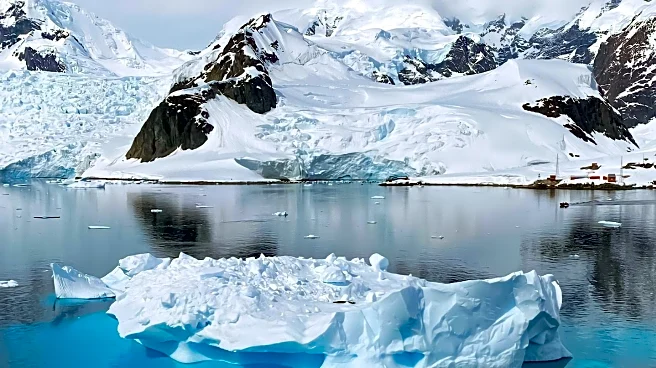What is the story about?
What's Happening?
The remains of Dennis 'Tink' Bell, a British researcher who vanished in 1959, have been discovered near a receding glacier in Antarctica. Bell, a meteorologist for the Falkland Islands Dependencies Survey, died in a crevasse on a glacier at Admiralty Bay on King George Island. His body was identified using DNA analysis. Bell's remains were found alongside over 200 personal items, including a watch and ski poles. The discovery was made by a Polish team, bringing closure to a decades-long mystery and highlighting the human stories in Antarctic exploration.
Why It's Important?
The discovery of Dennis Bell's remains underscores the impact of climate change, as melting glaciers reveal long-hidden bodies of missing explorers. This phenomenon has been observed globally, with similar discoveries in Peru, the Swiss Alps, and Switzerland. The identification of Bell's remains provides closure for his family and serves as a reminder of the risks faced by early Antarctic researchers. It also highlights the importance of preserving historical records and the contributions of those who advanced scientific understanding in extreme environments.
Beyond the Headlines
The melting of glaciers due to climate change is revealing not only human remains but also historical artifacts, offering new insights into past expeditions. This trend raises ethical questions about how to handle such discoveries and the responsibilities of nations involved in Antarctic research. The preservation of these sites and the stories they hold is crucial for understanding the history of exploration and the ongoing impact of climate change on the environment.
















